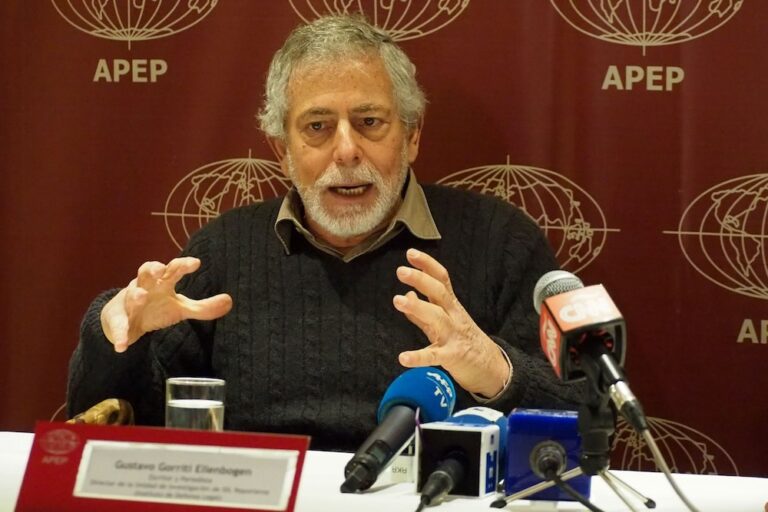(RSF/IFEX) – Threats against four radio journalists, in leaflets signed “Shining Path” (Sendero Luminoso) that were left in a town in the central region of Huánuco on 15 December 2007, should be taken seriously even if the Shining Path guerrillas were not responsible for them, RSF says. Rife with crime and drug trafficking, Huánuco is […]
(RSF/IFEX) – Threats against four radio journalists, in leaflets signed “Shining Path” (Sendero Luminoso) that were left in a town in the central region of Huánuco on 15 December 2007, should be taken seriously even if the Shining Path guerrillas were not responsible for them, RSF says. Rife with crime and drug trafficking, Huánuco is a very dangerous region for journalists.
“Shining Path’s ‘popular war’ took a heavy toll on Peru’s journalists,” RSF said. “Nowadays, the Maoist guerrillas are largely dismantled and it may well be that they are not behind the threats against these four journalists. But their name still instills terror and some armed groups, including those linked to drug trafficking, do not hesitate to use it as a cover.”
RSF added: “As all of these four journalists have reported on the highly sensitive issue of coca, the threat against them should be taken seriously. The authorities must quickly establish who is behind these threats and should ensure that the potential targets get the best protection possible.”
The mysterious leaflets were left at the entrance to the town hall of Aucayacu, a municipality in the Huánuco region. Signed “Shining Path,” they contained threats against people known locally, including the four journalists – Ranforte Lozano and Segundo Ramírez of Radio Aucayacu, and Novel Panduro and Cirilo Velásquez of Radio Luz.
“Avoid leaving your homes at night or late in the afternoon as we decline all responsibility for what could happen in centres of night-life,” says the copy of the leaflet sent to RSF by one of the journalists ( see: http://www.rsf.org/IMG/jpg/Sentier_lumineux.jpg ). Switching to the first person, the author says he will have no regrets, in a situation of “war,” about “killing the corrupt people” who “besmirch political society.”
The four journalists, who filed a complaint at the Aucayacu police station, are all well-known for having done reports on coca, and for encouraging coca growers (“cocaleros”) to avoid falling under the sway of the drug traffickers. They have also criticised police abuses.
Reputed to be a hotbed of drug-traffickers, former guerrillas and police officers involved in paramilitary activity, the Huánuco region still bears the scars of the war between Shining Path and government forces that began in 1980 and continued until 2000. Atrocities on both sides left a toll of more than 70,000 dead and missing.


